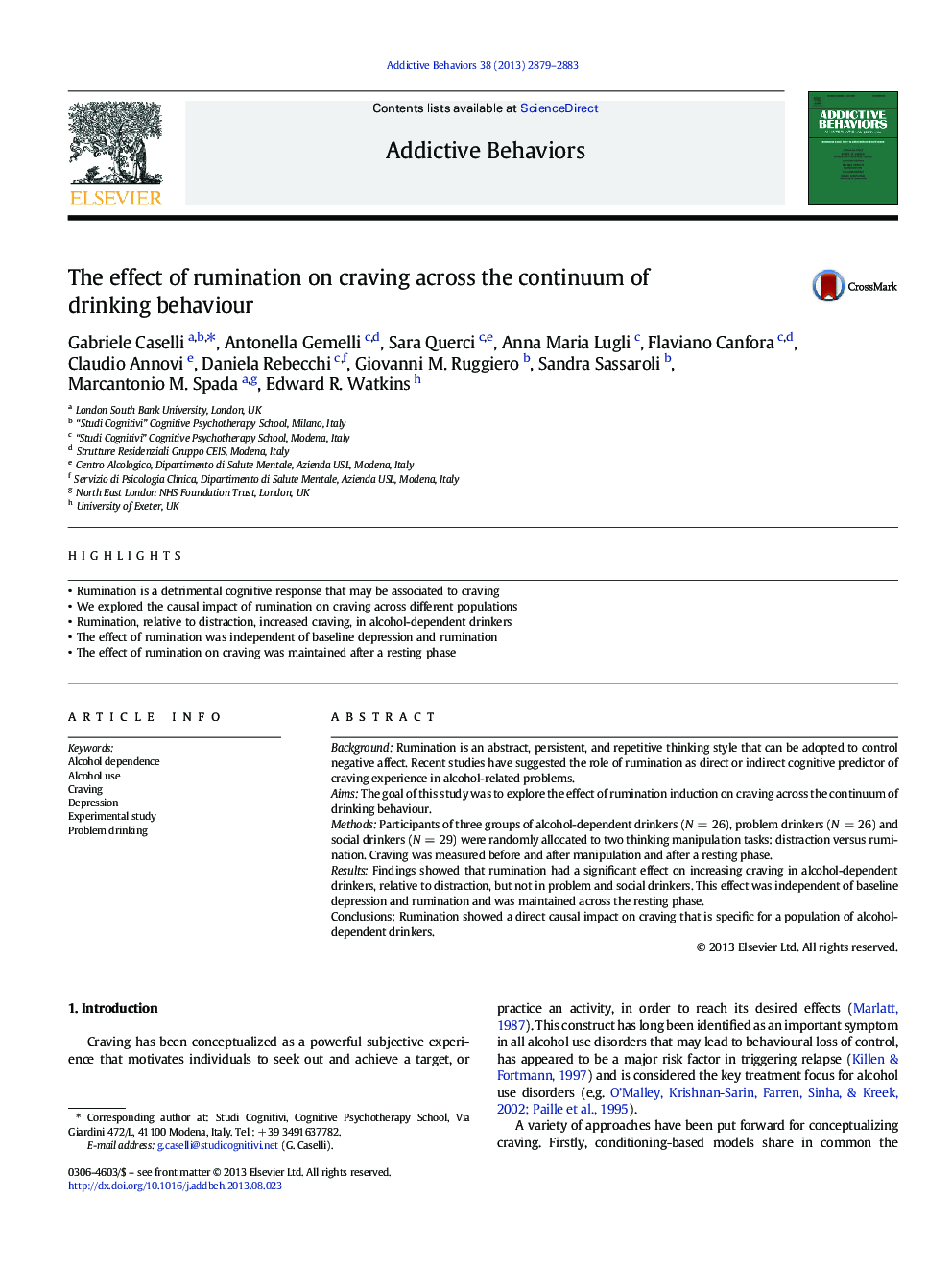| Article ID | Journal | Published Year | Pages | File Type |
|---|---|---|---|---|
| 898845 | Addictive Behaviors | 2013 | 5 Pages |
•Rumination is a detrimental cognitive response that may be associated to craving•We explored the causal impact of rumination on craving across different populations•Rumination, relative to distraction, increased craving, in alcohol-dependent drinkers•The effect of rumination was independent of baseline depression and rumination•The effect of rumination on craving was maintained after a resting phase
BackgroundRumination is an abstract, persistent, and repetitive thinking style that can be adopted to control negative affect. Recent studies have suggested the role of rumination as direct or indirect cognitive predictor of craving experience in alcohol-related problems.AimsThe goal of this study was to explore the effect of rumination induction on craving across the continuum of drinking behaviour.MethodsParticipants of three groups of alcohol-dependent drinkers (N = 26), problem drinkers (N = 26) and social drinkers (N = 29) were randomly allocated to two thinking manipulation tasks: distraction versus rumination. Craving was measured before and after manipulation and after a resting phase.ResultsFindings showed that rumination had a significant effect on increasing craving in alcohol-dependent drinkers, relative to distraction, but not in problem and social drinkers. This effect was independent of baseline depression and rumination and was maintained across the resting phase. Conclusions: Rumination showed a direct causal impact on craving that is specific for a population of alcohol-dependent drinkers.
